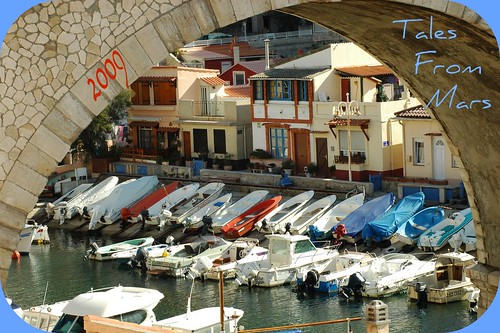At some point I realized that if I were going to truly learn French I had to drop the negative, smarmy, and holier-than-thou attitude. On particularly tough, depressing days I take out my frustrations on French culture and language. I poke fun at its hoity-toity rhythms, lambaste its delicate pronunciations, decry its lip-numbing (literally) formations and self-indulgent flowery-isms (who needs poetry in English when you have the suffix –ism?), and, most irritatingly, its play on words or jeux de mots. The French LOVE word play. My husband Marc has always told me about this, a phenomenon that had crossed the Atlantic and become an integral part of Quebecois culture as well. Word play isn’t just for the average cornball. In France it’s considered intellectual, as common as an octogenarian reading a bande desinée or comic book, and funny. Much of French humor is tied to word play because 1) there are so many words that sound alike and 2) so many of those same words that contain several, extremely unrelated meanings. The possibilities are endless. And so I shouldn’t have been surprised to learn about Verlan. Verlan is a language within a language. I can’t help but think of Ebonics as the near-perfect analogy. Both originated in the suburbs (meaning outlying city areas as opposed to strictly ghettoes), both were propagated by the hip hop community, and both have become accepted – to a certain degree – in every day life and interactions. Verlan began in Paris in the 1930s, gained momentum in the 70s and then saw an explosion in the 90s when French rap began to take off and reach a wider audience. (Here’s the departing point in my comparison, as Ebonics is generally used by the African-American population and Verlan is used by the populace at large.) Now Verlan is fashionable – it is a verb, verlaniser, much like “google” – although some already consider it ringard (corny, old-fashioned) and even d’une mauvaise manière (of a poor manner). Each to his own. But Verlan is a curiously interesting function of modern language-users; we continually attempt to make language less complex and more accessible by reducing syllables, dropping and/or rearranging letters, and inverting entire words. I find the opposite to be true, and it makes me wonder, somewhat nervously, what language(s) will be like 100 years from now, even earlier…which brings to mind David Mitchell’s “Cloud Atlas,” when in a futuristic world brand names become verbs and nouns. Nonetheless, one of the first mot verlanisé that I came across – without knowing it at the time – was keuf. Keuf means flic, or “cop,” in French. And keuf is flic, à la verlan. I mean, can’t you tell?! Here’s how that one works: keuf (keu-fli) = "flic" (fli-keu). In a way it works like Pig Latin: by dropping the final consonant sound “c” (as in “cut”) and adding the vowel sound –eu, the word thereby loses its original vowel sound to become “keu.” Add the “f” and voila!, you have the verlanised word keuf. But this is only what generally happens with a monosyllabic word. The rules are different for words of two syllables (apparently the simplest form) and for those with three or more. It must be known, however, that Verlan is intended to be a personalized language so although there are some “rules” none are set in stone. Here are a few more examples just to rattle your brain a bit:
zarbi = "bizarre"
zyva = "vas-y" (go ahead)
Moi → ouam
Toi → ouat
Méchant → chanmé (mean)
Gentil → tigen (nice)
Métro → tromé ou trom
Voiture → turvoi (car)
So far, les mots verlanisés haven’t held much appeal for me, perhaps because I’m still plowing through vernacular French. Then again, if and when the time comes that I do use Verlan I think it’ll be a huge sign that I’ve become more French than I would have ever imagined…et ca sera zarbi!








No comments:
Post a Comment